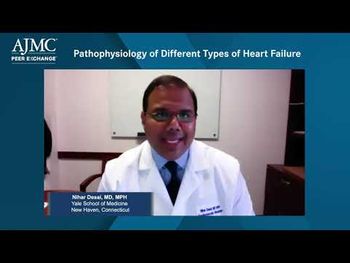
Diabetes
Latest News
Latest Videos

More News

















Children and adolescents initiating selective serotonin reuptake inhibitors (SSRIs) may be at a small increased risk of developing type 2 diabetes, according to a recent study published in JAMA Psychiatry.

Dulaglutide reduces liver fat content in patients with type 2 diabetes (T2D) and nonalcoholic fatty liver disease, when used in combination with standard T2D treatment.

In a cohort study, investigators from Denmark used nationwide register data to analyze the relationship between influenza vaccinations and cardiovascular outcomes among individuals with diabetes.

A Boxed Warning on increased risk of leg and foot amputations has been removed from the label of canagliflozin, a sodium glucose cotransporter 2 (SGLT2) inhibitor.

A 16-week trial involving children with type 1 diabetes (T1D) found glucose level was in the target range for a greater percentage of time in individuals who used a closed-loop system compared with those who used a sensor-augmented insulin pump.

In individuals with type 2 diabetes and comorbid obesity, the metabolic benefits of gastric bypass surgery and diet were similar and related to weight loss itself, but it had no clinically important effects independent of weight loss.

Individuals with recent-onset type 2 diabetes (T2D) accompanied by weight loss have a high risk for developing pancreatic cancer, according to a study published in JAMA Oncology.

In individuals with type 1 diabetes (T1D), bacterial infections are associated with an increased risk of coronary heart disease, according to a study published in the Journal of Internal Medicine.

Researchers developed a test to better determine which children will develop type 1 diabetes (T1D), moving closer to routine testing for newborns and potentially avoiding the risk of life-threatening complications.













